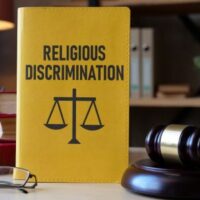EEOC Wins Suit Against Security Company for Failing to Accommodate Muslim Employee

The Equal Employment Opportunity Commission recently settled a lawsuit against Blackwell Security Services for failing to make a reasonable religious accommodation for a Muslim employee and forcing him to choose between his religion and his livelihood. According to the lawsuit, the employee worked as a concierge in Chicago, IL. The company hired him on but immediately required that he shave his beard to retain his employment. The employee asked for a religious exemption because he was Muslim, and the company denied him even though doing so caused no cost or operational burden on the business. To avoid losing his job, the employee complied with his employer’s request even though it caused him significant distress. He is no longer employed with the company.
According to the EEOC, this conduct violated Title VII of the Civil Rights Act of 1964 which prohibits discrimination based on religion and requires employers to make reasonable accommodations for an employee’s religious observance unless the accommodation would impose undue hardship on the business. In this case, the business could not establish that allowing the employee to retain his beard would cause the business undue hardship. They simply had a policy of requiring all employees to be clean-shaven.
The EEOC filed a lawsuit in U.S. District Court for the Northern District of Illinois after first attempting to reach a pre-litigation settlement. Ultimately, the company was required to pay the employee $70,000 and provide training to managers on federal laws prohibiting religious discrimination.
Religious discrimination and reasonable accommodation
Employers are prohibited from discriminating against employees based on the practice of their religion. This puts a duty on employers to make accommodations for employees who follow a specific religion. In this case, having a beard was an integral part of the employee’s religious expression and practice. The employer suffered no hardship by accommodating the employee and allowing him to retain his beard. The employer forced the employee to shave his beard, and ultimately forced him to choose between retaining his position with the company and freely expressing his religious practice. As a result, the company was sued by the EEOC and forced to pay the employee $70,000 in damages for violating his civil rights.
Unless it would place undue hardship on the business, all U.S. employers are required to accommodate an employee’s religious practice. This includes matters such as grooming and the way they dress. As an example, some employers still have policies against dreadlocks. The employer can require an individual to change their hairstyle, but not if that individual is a Rastafarian since dreadlocks are a part of their religious expression. Employers must allow Jewish employees to wear yarmulkes and Muslims to wear headscarves. Such prohibitions are illegal under Title VII of the Civil Rights Act.
Talk to a Tampa, FL Religious Discrimination Lawyer Today
Florin Gray Bouzas Owens, LLC represents the interests of employees who have been discriminated against in the workplace. Call our Tampa employment lawyers today to schedule a free consultation, and we can begin building your case right away.
Source:
jdsupra.com/legalnews/blackwell-security-services-will-pay-70-2904656/